|
|
|
|
|
|
|
|
No Arctic-science events are scheduled for today.
|
Media
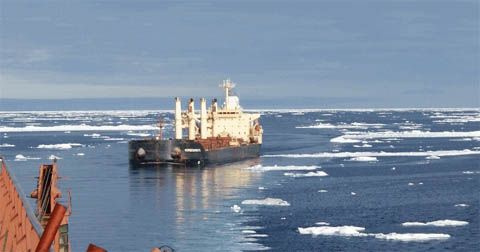 Slower Speeds Could Help Reduce Noise Impact in Arctic. Slower Speeds Could Help Reduce Noise Impact in Arctic. Underwater noise from shipping has been raised as a concern for Arctic code and other marine species in the western Canadian Arctic, with researchers highlighting the potential benefits of slower ship speeds. Previously the region's natural underwater soundscape has been shielded from commercial shipping noise by the sea ice that covers the area, rendering it mostly inaccessible to shipping vessels. But with large amounts of ice shrinking in the Arctic Ocean, a growing number of ships are gaining access to the area. Maritime Executive
Natural Resources Minister Does Not Expect Arctic Shelf Extension. Russia's bid to extend the Arctic shelf will hardly be approved in the near future, although in terms of geology, all the documents have been submitted, said Russian Minister of Natural Resources and Environment Dmitry Kobylkin in his address to the Federation Council during the Government Hour. TASS reported him as saying: "The Russian claim for Arctic shelf extension is not making easy progress. Given that the general situation is not favorable for Russia, of course we cannot expect that the issue will be resolved in the near future." The Arctic
Fresh Water Vanished in Stratified Toxic Lake in Russia. The fresh water layer has disappeared and the toxic layer rose by 2 meters in Lake Mogilnoye on the Kildin Island in the Barents Sea, the Murmansk Arctic State University press service reports. Mogilnoye has three layers: fresh water on the surface, then a sea water layer and a toxic hydrogen-sulphide layer at the bottom. The toxic layer has gone up by 2 meters and the freshwater layer grew thinner and has disappeared altogether over the past 10 years. The Arctic
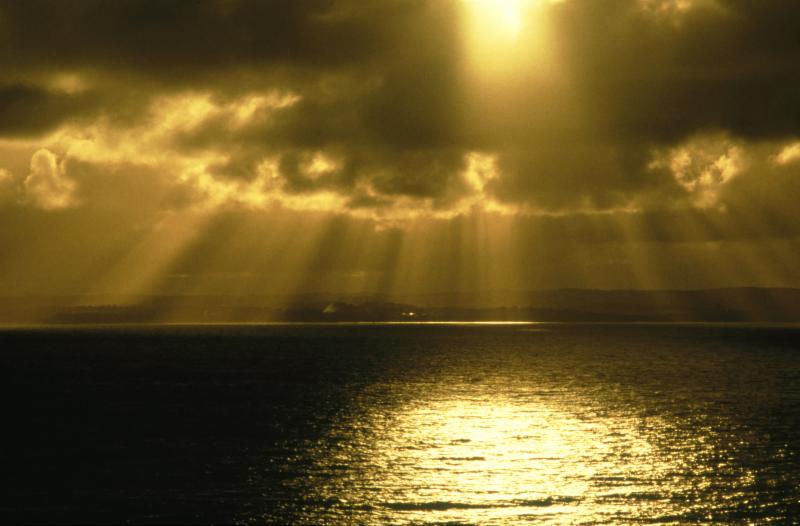 Changing Ocean Currents May Affect Global Climate. Changing Ocean Currents May Affect Global Climate. Yale researchers have discovered that as a result of global warming, deep currents in the Atlantic Ocean may shift, leading to the rapid loss of sea ice in the Arctic Ocean. Currently, southward-flowing water maintains the Atlantic Meridional Overturning Circulation, a collection of sea currents located deep in the ocean known by its acronym AMOC. But the study, published on Oct. 22 in the Nature Climate Change journal, found that due to rising carbon dioxide levels, the water will begin to flow northward - which may increase the melting rate of sea ice in the Arctic Ocean. Yale Daily News
Russia Unveils Wind Farm in Town North of Arctic Circle to Reduce Diesel Consumption. A Russian energy company has opened a wind farm in a remote village north of the Arctic Circle to help 4,600 of its residents reduce reliance on expensive diesel generators and fuel deliveries. Russia's RusHydro electric company teamed up with Japanese researchers and the administration of Russia's Far Eastern republic of Sakha last year on an energy management system aimed at stabilizing the remote settlement's power grid. The "Polar Microgrid System" project's stated goal is to integrate existing generating facilities with wind turbine generators and storage batteries. Moscow Times
|
|
Future Events
The increasing rate of Arctic change: how should the research community keep up? Session II, November 15, 2018 (Webinar). The Study of Environmental Arctic Change (SEARCH) seeks a broad conversation with past, present, and future members of its community on how SEARCH might serve to advance synthesis and engagement in the coming decades? What coordination of research and communication is needed? This video conference (Zoom) continues a discussion (The Increasing Second Derivative of Arctic Change) held by webinar on 5 October 2018. For more information, contact Brendan P. Kelly (bpkelly@alaska.edu) SEARCH Executive Director. Register and receive webinar link
Maritime & Arctic Security & Safety Conference (MASS18) "Arctic Technology" November 15-16, 2018 (Newfoundland & Labrador Canada). Now in its sixth year, MASS has gained an international reputation as a 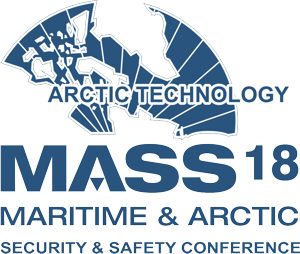 must-attend event to gain a wide perspective on challenges, opportunities and policies related to the Arctic and North Atlantic maritime environments. The aim of this Government of Canada and the Government of Newfoundland and Labrador supported international conference is to promote stakeholder collaboration, technological innovation, harsh environment research & development, and world-class education efforts that are contributing to both Maritime and Arctic issues. This two day conference will draw a diverse group of speakers and attendees representing government, military, Canadian and U.S. Coast Guard, industry, academic leaders, Northern Leaders, research and other key stakeholders. We hope you can join us to be a part of this important dialogue must-attend event to gain a wide perspective on challenges, opportunities and policies related to the Arctic and North Atlantic maritime environments. The aim of this Government of Canada and the Government of Newfoundland and Labrador supported international conference is to promote stakeholder collaboration, technological innovation, harsh environment research & development, and world-class education efforts that are contributing to both Maritime and Arctic issues. This two day conference will draw a diverse group of speakers and attendees representing government, military, Canadian and U.S. Coast Guard, industry, academic leaders, Northern Leaders, research and other key stakeholders. We hope you can join us to be a part of this important dialogue
* new this week * DOD Arctic research session at SERDP/ESTCP, Nov. 29, 2018, Washington, DC. An Arctic research focus will be presented at the SERDP-ESTCP annual meeting "Enhancing DoD's Mission Effectiveness." The Strategic Environmental Research 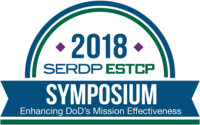 and Development Program (SERDP) and Environmental Security Technology Certification Program (ESTCP) symposium is a nationally recognized conference focusing on DOD's priority environmental and installation energy issues. This year's meeting, at the Washington Hilton Hotel, 1919 Connecticut Ave., NW, Washington, DC 20009, will feature a technical session on Arctic research under the theme of "Resource Conservation and Resiliency." The session is scheduled for Thursday, Nov. 29th, from 8:30 am to 11:30 am, and will include the following speakers: Andrew Nelson (USACE), John Farrell (USARC), Martin Jeffries (USACE/CRREL), John Woods (ONR-RC), Kevin Bjella (USARC/CRREL), and Hajo Eicken (UAF/IARC). and Development Program (SERDP) and Environmental Security Technology Certification Program (ESTCP) symposium is a nationally recognized conference focusing on DOD's priority environmental and installation energy issues. This year's meeting, at the Washington Hilton Hotel, 1919 Connecticut Ave., NW, Washington, DC 20009, will feature a technical session on Arctic research under the theme of "Resource Conservation and Resiliency." The session is scheduled for Thursday, Nov. 29th, from 8:30 am to 11:30 am, and will include the following speakers: Andrew Nelson (USACE), John Farrell (USARC), Martin Jeffries (USACE/CRREL), John Woods (ONR-RC), Kevin Bjella (USARC/CRREL), and Hajo Eicken (UAF/IARC).
Causes for the record low sea-ice extent in the Bering Sea in 2018, November 19, 2018 (Webinar). This seminar is part of NOAA's EcoFOCI bi-annual seminar series focused on the ecosystems of the North Pacific Ocean, Bering Sea and U.S. Arctic to improve understanding of ecosystem dynamics and applications of that understanding to the management of living marine resources. This webinar will be an in-depth look at the driving factors of a warm Bering Sea including ice arrival, extent, and implications.
American Geophysical Union Fall meeting, December 10-14, 2018 (Washington, DC USA). The AGU 2018 Fall Meeting will mark another dynamic year of discovery in Earth and space science, serve as the advent of AGU's Centennial year, and provide a special opportunity to share our science with world  leaders in Washington, D.C. As the largest Earth and space science gathering in the world, the Fall Meeting places you in the center of a global community of scientists drawn from myriad fields of study whose work protects the health and welfare of people worldwide, spurs innovation, and informs decisions that are critical to the sustainability of the Earth.
USARC Commissioner Jacqueline Richter-Menge to deliver the Nye Lecture at the 2018 AGU Fall Meeting. The US Arctic Research Commission (USARC) is pleased to announce that Commissioner Jacqueline Richter-Menge will present this year's Nye Lecture, titled "A Career of Change," at the Fall Meeting of the American Geophysical Union (AGU) in Washington, DC at 2:50 pm on Tuesday, December 11, 2018 in the Marquis room of the Marriott Marquis Hotel, 901 Massachusetts Ave. NW, Washington, DC 20001.
ArcticNet: Annual Scientific Meeting 2018, December 10-14, 2018 (Ottawa, ON Canada). Canada's North is experiencing unprecedented change in its sea and terrestrial ice, permafrost and ecosystems under the triple pressures of climate change, industrialization and modernization. The impacts of these pressures can be seen on food and energy security, shipping, sovereignty, northern community health and well-being, and sustainable development and resource exploitation. All these issues have brought the North to the forefront of national and international agendas. Building on the success of its previous Annual Scientific Meetings and International Arctic Change Conferences, the Arctic Network of Centers of Excellence announces the 14th ArcticNet Annual Scientific Meeting.
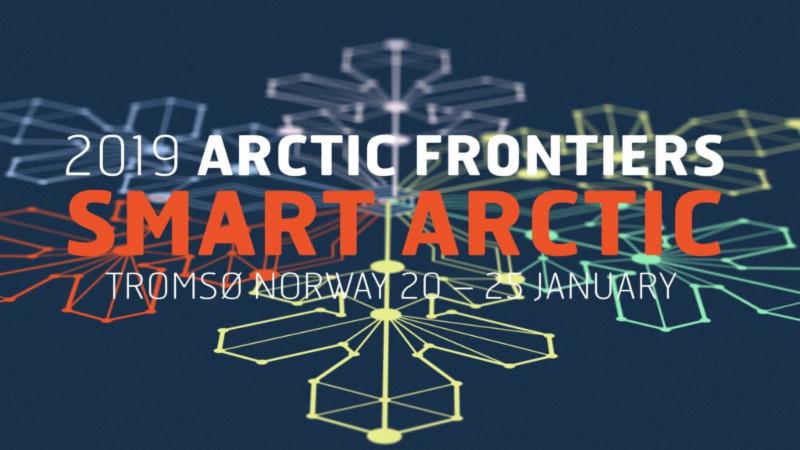 Arctic Frontiers, January 20-25, 2019 (Tromso, Norway). The Arctic Frontiers is a global scientific conference on economic, societal, and environmental sustainable growth. This year's theme will be "Smart Arctic," with a pan-arctic emphasis, and an effort to build new partnerships across nations, generations and ethnic groups. Arctic Frontiers provides a forum for dialogue and communication between science, government and industry. The plenary program will have five main sessions: State of the Arctic, Blue Growth, Smart Solutions, Bridging the Gap, and Arctic business prospects. An abstract-driven science program will address Plastics in the Ocean, the Future of Governance and Handling Vulnerability in Arctic Ecosystems, State of the Arctic and A Smart Arctic Future.
Save the Date! 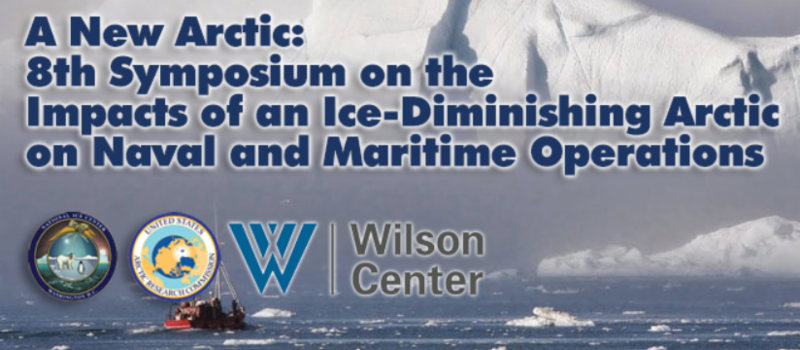
* new this week *
Mark your calendars to attend IDA-8, which some have called one of the best Arctic gatherings around. Historically, this biennial symposium was co-hosted by U.S. National/Naval Ice Center (NIC) and the US Arctic Research Commission (USARC). In 2019, these partners will join forces with the preeminent Wilson Center's Polar Institute, as a third co-host. The now 2-day symposium will be held in the Ronald Reagan Building Amphitheater, in Washington, DC. The event will focus on a broad cross-section of naval and maritime operations and issues in an ice-diminishing Arctic. The symposium brings together nationally and internationally recognized experts on Arctic governance, geopolitics, marine operations, infrastructure, science, and environmental observations, from the local, regional, and pan-Arctic scale. Information on prior symposia, including lists of speakers, video clips, and copies of presentations, is available here. Attendance is free, and registration will begin in Spring 2019. The event will be webcast live, and video recorded.
 of the AAG includes over 8,500 geographers converging from the U.S., Canada, and nearly 60 other countries in a typical year including geographers, GIS specialists, environmental scientists, and other leaders for the latest in research and applications in geography, sustainability, and GIScience. of the AAG includes over 8,500 geographers converging from the U.S., Canada, and nearly 60 other countries in a typical year including geographers, GIS specialists, environmental scientists, and other leaders for the latest in research and applications in geography, sustainability, and GIScience.
|
|

  
4350 N. Fairfax Drive, Suite 510
Arlington, VA 22203, USA
External links in this publication, and on the USARC's World Wide Web site ( www.arctic.gov) do not constitute endorsement by the US Arctic Research Commission of external Web sites or the information, products or services contained therein. For other than authorized activities, the USARC does not exercise any editorial control over the information you may find at these locations. These links are provided consistent with the stated purpose of this newsletter and the USARC Web site.
|
|
|
|
|
|
|
|
|